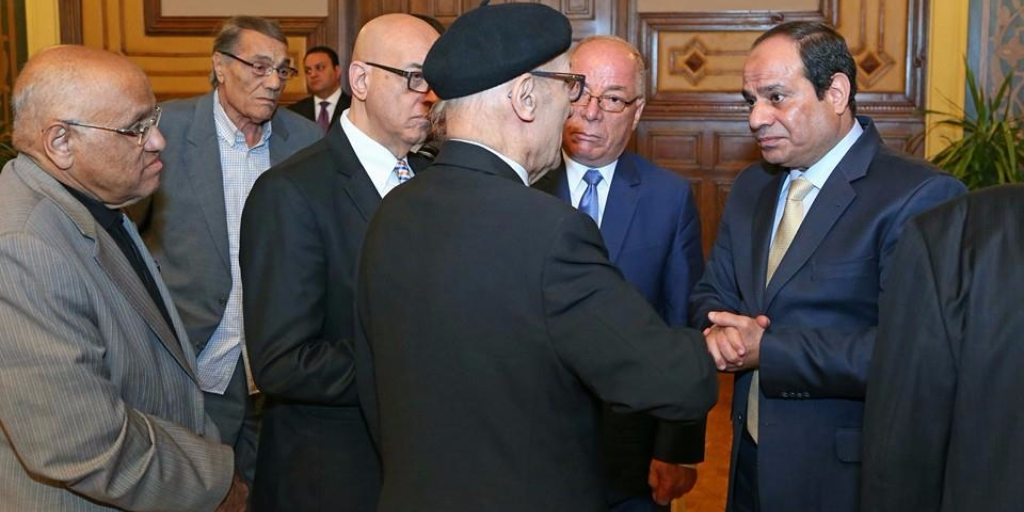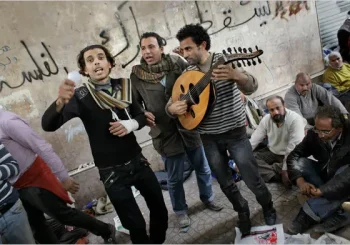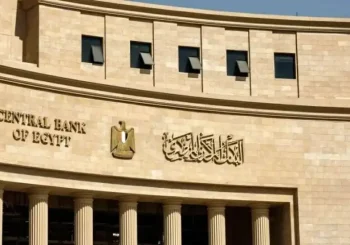By Nourhan Fahmy
Egyptian President Abdel Fattah al-Sisi initiated on Tuesday an open dialogue with more than 20 intellectual figures to discuss various issues of national concern, according to a statement by the presidency.
The participants were requested to form “working groups” to further discuss the various issues brought up during the national dialogue. Sisi is expected to follow up with the groups’ recommendations a month from now.
The meeting marked the first round of a planned national dialogue with a large number of politicians, intellectuals and media workers to “share ideas and visions regarding Egypt’s development and create a suitable environment for growth.”
The presidency’s spokesperson Alaa Youssef said that participants tackled issues including the role of the media, freedoms, economic problems, extremism, and the status of prisoners.
Participants discussed the perceived deficiencies in the media and debated the ways by which the media could be regulated and deficiencies rectified.
Publisher and political analyst Hisham Kassem told Aswat Masriya that the “best solution” would be for the state to “just lay its hands off the media.”
“The president is not happy about the media, and he insists on a certain view of what the media is and what it should be doing,” Kassem, who is former publisher at the privately-owned al-Masry al-Youm newspaper, said.
Kassem described Tuesday’s meeting as a means to “pressure and contain” the media, and held the view that only a minority of the participants could sincerely contribute to rectifying the current situation.
Participants in the dialogue included current culture minister Helmy al-Nemnem, former culture ministers Gaber Asfour and Mohamed Arab, in addition to several well-known writers including Youssef Zidan, Galal Amin, Abdullah al-Sinawy and Mohamed Salmawy.
“From their perspective, the media does not necessarily have to shed light on the problems,” added Kassem, “But rather take a good thing and blow it out of proportion.”
When asked about the status of prisoners, Sisi mentioned that four batches were previously released following initiatives led by the National Council for Human Rights and the media.
However, there was no mention of a forthcoming decision to release detainees, despite speculations of such a move ahead of the dialogue.
Renowned columnist at al-Shorouk newspaper Ayman al-Sayyad said in a tweet that “it would be great if only one unjustly-detained person is released, but what would be greater is for all detainees to be released, and it is best to have a system that does not permit unjust detentions in the first place.”
Meanwhile, 20-year-old Mahmoud Mohamed, who has been in pre-trial detention for more than two years for wearing an anti-torture shirt, was released on bail on Tuesday night, according to the Association for Freedom of Thought and Expression (AFTE).
Kassem commented on the incident saying that the regime cannot continue releasing detainees in such a manner, because “even if a hundred or two were to be released today, current figures have exceeded the thousands.”
A recent presidential pardon of 100 detainees in September included activists Sanaa Seif and Yara Sallam, and al-Jazeera journalist Mohamed Fadel Fahmy.
Many of those pardoned were serving prison sentences after being convicted for violating the controversial protest law.
Egypt’s protest law has long been the epicentre of wide criticism by domestic and international human rights organisations which say it violates international standards for peaceful protest. It is currently being contested in front of the Supreme Constitutional Court.
Sisi was elected president in 2014 after he led a military ouster of Mohamed Morsi in 2013 following mass protests against Morsi’s rule.
This content is from: Aswat Masriya







Comments (2)
[…] held lengthy meetings March 22 with a group of intellectuals, later dubbed the “Group of 24.” Shortly […]
[…] held lengthy meetings March 22 with a group of intellectuals, later dubbed the “Group of 24.” Shortly […]